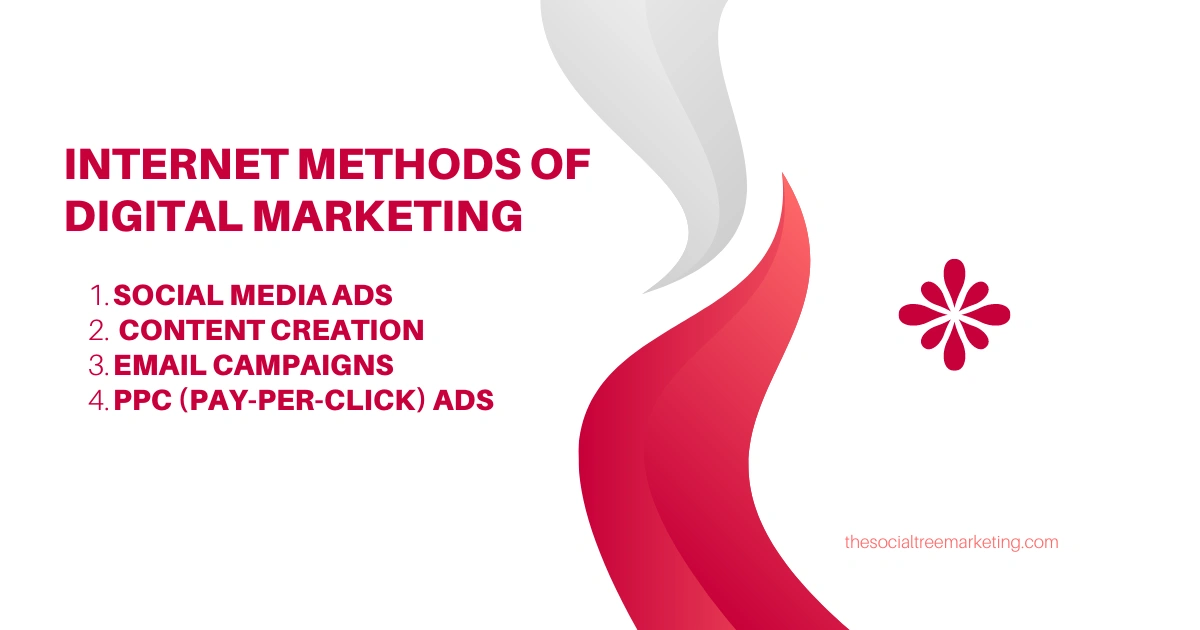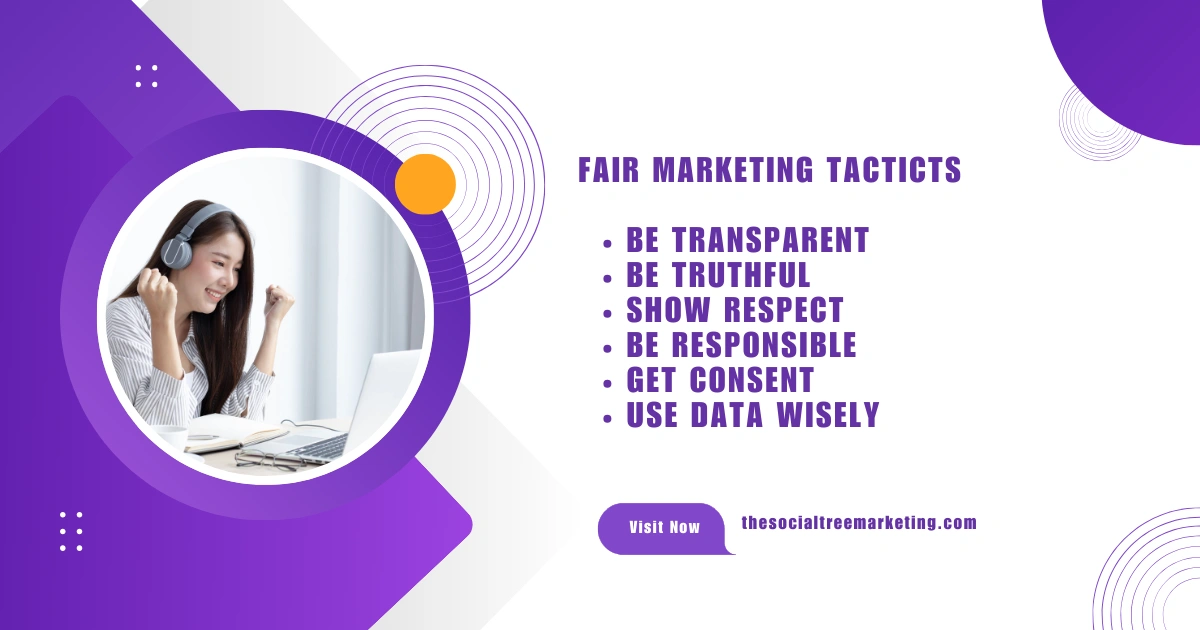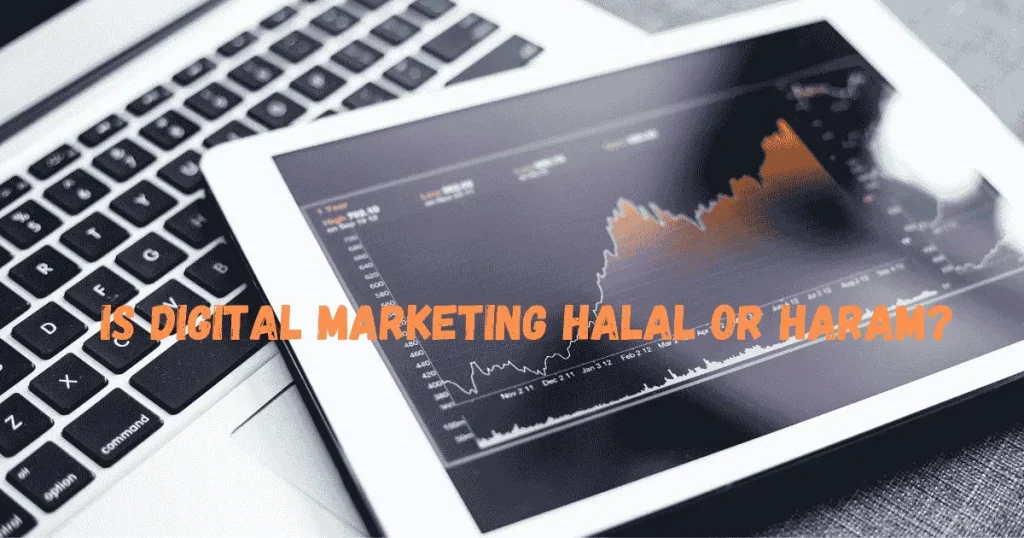Introduction
These days, digital marketing is everywhere. There are advertisements on Facebook, promotional emails filling your inbox, and intrusive pop-ups on websites—you name it—you can find them anywhere. If you are Muslim, you may be thinking whether marketing like this is haram or halal.
Furthermore, many eye-catching tactics like email campaigns, search engine optimization, and social media advertisements are in digital marketing.
However, not every marketing is equal. Looking at the method will help you determine whether something is haram or halal. Is it truthful and courteous? You may ensure that your marketing activities remain on course by adhering to Islamic teachings.
What is Digital Marketing?
Digital marketing consists of various internet methods.

Here is an explanation:
Okay, let us dissect it. Digital marketing has many strategies that function as a toolkit for companies looking to connect with customers online.
Social Media ads
Consider the advertisements on your Instagram or Facebook newsfeed. Companies pay to place advertisements for their brands directly in front of you as you browse around your preferred social media apps. It is an attempt to grab your attention and pique your curiosity.
Have you ever seen why certain websites appear at the top of Google search results? That is the essence of SEO. It makes it easier for businesses to get recognized.
Content creation
Content used in companies to create infographics, videos, and blogs. The intention is to produce content that piques your interest and compels you to return for more. Making content that people want to read, or watch is the goal.
Email campaigns
You have likely received emails from brands to tell you about sales or exclusive offers. These email marketing efforts inform you of updates and entice you to look at their deals.
PPC (Pay-Per-Click) Ads
PPC ads appear when you search for something on the internet. The company receives a commission each time you click on one of these ads. They can use it to drive traffic from search results to their website.
Each of these methods is considered a toolkit. Businesses use it to get your attention and make a purchase. But, if you are wondering whether these methods are halal, there are a few things to consider. It is about how they are employed and what they expose.
Table of Contents
ToggleEthical Considerations

Ethics are valuable in Islam, and they help us to understand if something is halal or haram. Here’s what to consider:
Honesty
Always speak the truth in your ads. Do not overstate and mislead people. It is like when you are truthful with your friends—do not promise more than you can convey.
Fairness
Deal with people fairly. Do not use clever tricks or take advantage of anyone. Just be humble and simple.
Privacy
Maintain the privacy of people. If you collect data, ensure to get permission and keep it safe. It is like keeping the secrets of your friends.
These ethics help ensure that your digital marketing is halal.
Ethical Use of Data
Managing customer data is all about trust. Islam emphasizes truthfulness, so your approach to data should reflect that.
Ask First
Do not gather info without asking. Be upfront and clear about what you are piling and why.
Don’t Be Sneaky
Avoid using personal data to exploit or pressure people into buying. Keep it honest and transparent.
Protect data
Make sure their information stays unassailable. Use safe systems and keep up with solitariness rules.
Social Responsibility
Marketing is not just about making money. It is about doing good. Islam encourages helping others, and your campaigns can be part of that.
Advertise What Matters
Market products that help people, like eco-friendly products or services that sweeten daily life.
Partner With Good Brands
Work with businesses that appreciate ethics and sustainability.
Stay Away From Damaging Goods
Do not encourage items like cigarettes, alcohol, or anything else that is harmful to people.
Example
Highlight a brand that uses eco-friendly packaging or gives to charity. It is helpful for the world and your audience.
Avoiding Pushy Marketing
Be honest—nobody likes being spammed or seeing the same ad everywhere. Respect your audience’s space, and they will admire you.
Don’t Exaggerate It
Keep ads and emails to a proper level. Less is more when it comes to staying on people’s good side.
Make It Easy to Opt Out
Always offer a straightforward way for people to unsubscribe or say no to your campaigns.
Be Helpful
Share tips, entertaining content, or valuable info instead of concentrating on the hard sell.
Example
Instead of spamming promo emails, send something valuable—like a brief tip. People will read it.
Sustainability and Caring for the Earth
Caring for the earth is not optional. It is our obligation. Islam instructs us to save the world, and marketing can reflect that.
Go Green
Switch paper ads for digital ones. It is better for the environment and your allocation.
Work With Eco-Conscious Brands
Emphasize companies that do their part to help the globe.
Encourage Wise Choices
Guide your audience on why eco-friendly products are worth it.
Example
If you are advertising olive wood products, elaborate on how they are sustainably made and why natural materials are a good option for the environment.
Ethical marketing is good business. It is about doing the right thing. Also, it helps your audience trust you.
Islamic Guidelines for Marketing
Islam has defined business rules. Here’s how they apply to marketing:
Halal and Haram in Business
In Islam, business should:
Be Honest: Be truthful about what you are selling.
Be Fair: Deal with people fair in transactions.
Avoid Haram: Do not cheat.
Applying These to Digital Marketing
For digital marketing, consider:
Content
Ensure you are not exposing haram goods, like alcohol or gambling.
Intent
Your intent should be to provide real value, not just to make a sale.
Methods
Do not cheat or manipulate the customers.
Common Concerns
Here are a few concerns you might have about digital marketing:
Misleading Ads
Misleading ads are a concern. It is captivating to stretch the truth to make your product look better, but that is haram in Islam. Ensure your ads are truthful and accurate.
Privacy Issues
Privacy is another big issue. Digital marketing usually includes taking people’s info. Ensure to handle data responsibly because Islam values privacy. Get agreement before using someone’s data and keep it protected.
Promoting Haram Products
Do not expose haram products. It is haram in Islam if your marketing involves things like alcohol or gambling.
Guidelines for Halal Digital Marketing
To ensure your digital marketing is halal, follow these tips:
Creating Ethical Content
Avoid Haram Products
Do not promote stuff that is haram in Islam.
Be Honest
Provide accurate information about what you are sailing.
Respect Privacy
Handle personal data with honesty and always get agreement before collecting it.
Using Fair Marketing Tactics

Be Transparent
Be truthful about what you are sailing and the terms of any deals.
Show Respect
Give respect to your audience. Do not exploit them.
Be Responsible
Ensure your ads are truthful and are not misleading.
Handling Data Responsibly
Get Consent
Always take agreements before gathering or processing personal data.
Protect Data
Store data with protection and save it from violations.
Use Data Wisely
Use data wisely and avoid manipulation.
Example of Halal Digital Marketing
Suppose a company that sells natural skincare products. They share truthful reviews and tips about skincare on social media. They are plain about their products and respect customer privacy. It is a perfect example of halal digital marketing. —they are truthful and respectful.
Getting Advice
If you do not know what halal or haram is in marketing, asking Islamic scholars is a good idea. They can give proper guidance. These scholars have deep knowledge of Islam and can guide us on what is allowed.
Furthermore, the advice of an Islamic scholar is like getting expert advice. For example, if you ask a mechanic about car issues or a doctor about health problems, asking a scholar ensures you are marketing halal.
Fatwas
Islamic scholars provide fatwas, or recommendations, on many subjects, including digital marketing. If you wondered about your marketing strategies, it might be beneficial to look up fatwas. Consider it as receiving professional guidance from someone knowledgeable about contemporary business procedures and religious precepts.
Fatwas helps you make sure your marketing is in line with Islamic values. It is a guide that shows you the right way to go. This way, you can truthfully run your marketing campaigns.
Conclusion
Digital marketing can be halal or haram. It is up to you how it is doing. You can ensure your marketing aligns with Islamic values by being honest, fair, and respectful. Follow these guidelines to keep your digital marketing halal. It is all about your intentions and how you do it. So, the next time you are working on marketing, use these tips to ensure you are doing it halal.

